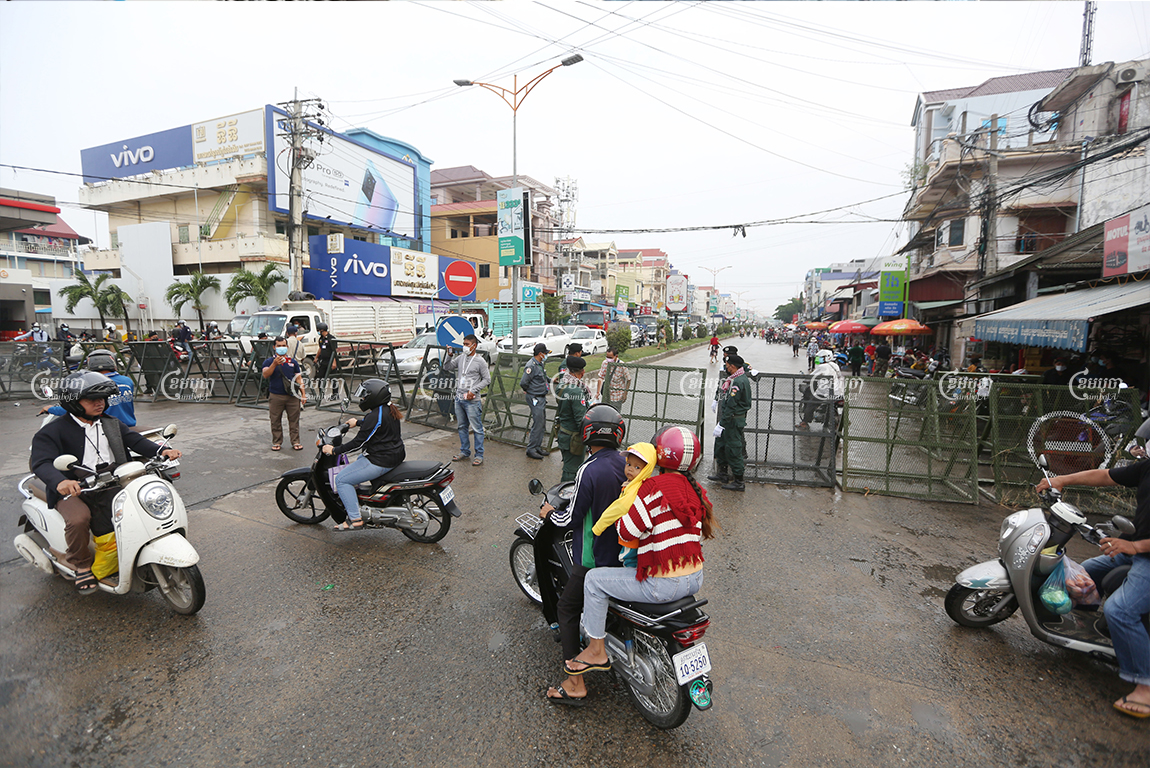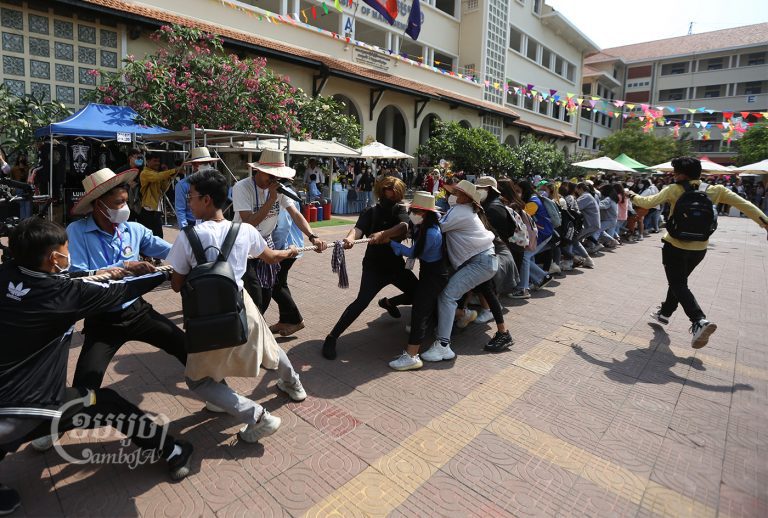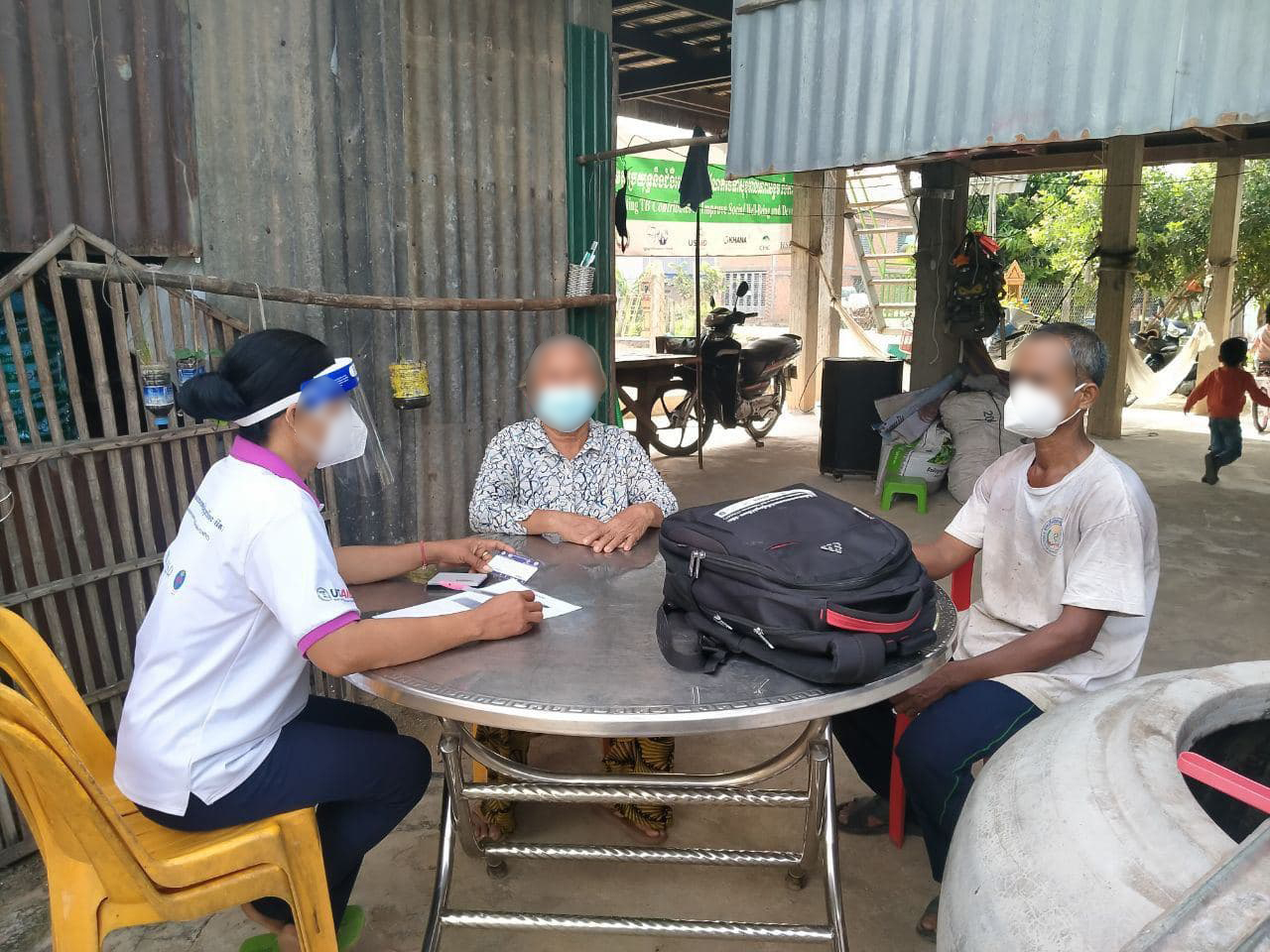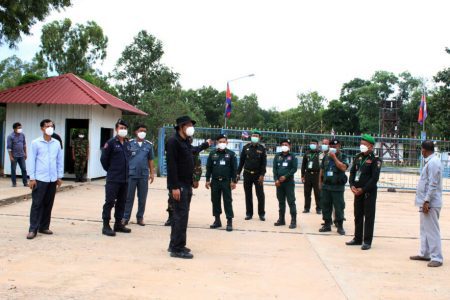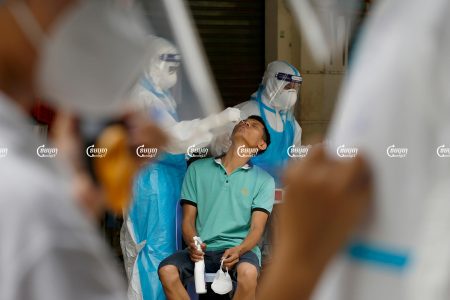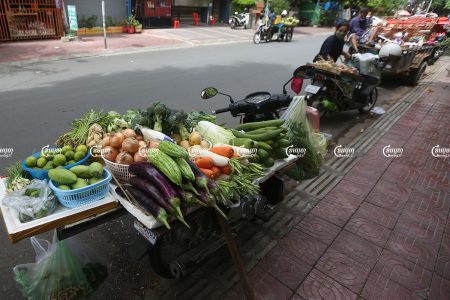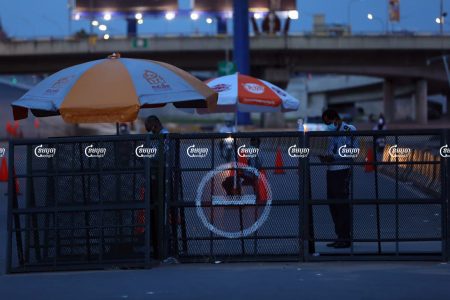On early Saturday, residents of some Phnom Penh districts woke up to neighborhood lockdowns set by the city government to contain COVID-19 hotspots after health officials recorded more than 1000 new cases within just two days.
A Friday afternoon statement from the Ministry of Health announced 576 new cases, most of which stemmed from popular markets, including O’Russei, and the Din Han garment factory in the city’s Meanchey district. Just a day later, the ministry announced 477 new cases, raising the total new confirmed cases to 3,549 since the February 20 onset of the current outbreak.
Almost all of the new cases were detected in Phnom Penh, with just 55 confirmed in the past two days outside the capital area. By Saturday afternoon, the death toll of the outbreak had claimed 26 people.
On Saturday, the local WHO office sounded an alarm with a statement of “stark warning” ahead of the upcoming Khmer New Year holiday, which traditionally involves family gatherings and extensive travel.
“We stand on the brink of a national tragedy because of COVID-19,” said Dr Li Ailan, WHO representative to Cambodia. “Despite our best efforts, we are struggling to control the virus. New cases occur every day and we are racing against the virus. Unless we can stop the outbreak, Cambodia’s health system is at high risk of being overwhelmed, which would have disastrous consequences.”
Government officials seem to be listening.
In response to the infection spike, Phnom Penh City Hall completely locked down for at least the next two weeks various places with high exposure to the virus, including the communes of Stung Meanchey 1 and Stung Meanchey 2, both of the Meanchey district in the city’s southwest. Authorities also locked down seven villages in Pur Senchey district, as well as one village in Sen Sok district.
Phnom Penh Governor Khuong Sreng said in a Friday night press conference that the decision to enact lockdown was a difficult one to make, as such restrictive measures have serious effects on residents.
“This is a work that the City Hall does to help [the people] to reduce the number of infections in order to cut off the infection of COVID-19 in Phnom Penh,” Sreng said to justify the move.
He named the Din Han Enterprise garment factory as a particular concern, adding the factory now identified as a key location of the outbreak employed many workers who may have been exposed to the virus. The factory employs at least 2,600 people.
“[A] total of 631 workers were infected with COVID-19,” Sreng said, listing numbers as of Friday. “This is the top figure that makes our Phnom Penh administration concerned about the spread.”
Sreng also described the method of neighborhood lockdown as a strategy used to high effect elsewhere in the world, pointing to cities abroad such as Hanoi and Melbourne, Australia.
“We will continue to sample the people at the place where they [workers] stay,” Sreng said, asking the public for both cooperation and forgiveness in the official introduction of lockdown.
The temporary measure should run from April 10-23.
“During lockdown all people are prohibited from travelling outside their homes,” said a city statement describing the lockdown conditions. “[Residents] are prohibited from gathering except for necessary duties such as travelling to be tested [for the virus] by health officials, health emergencies or to serve public services.”
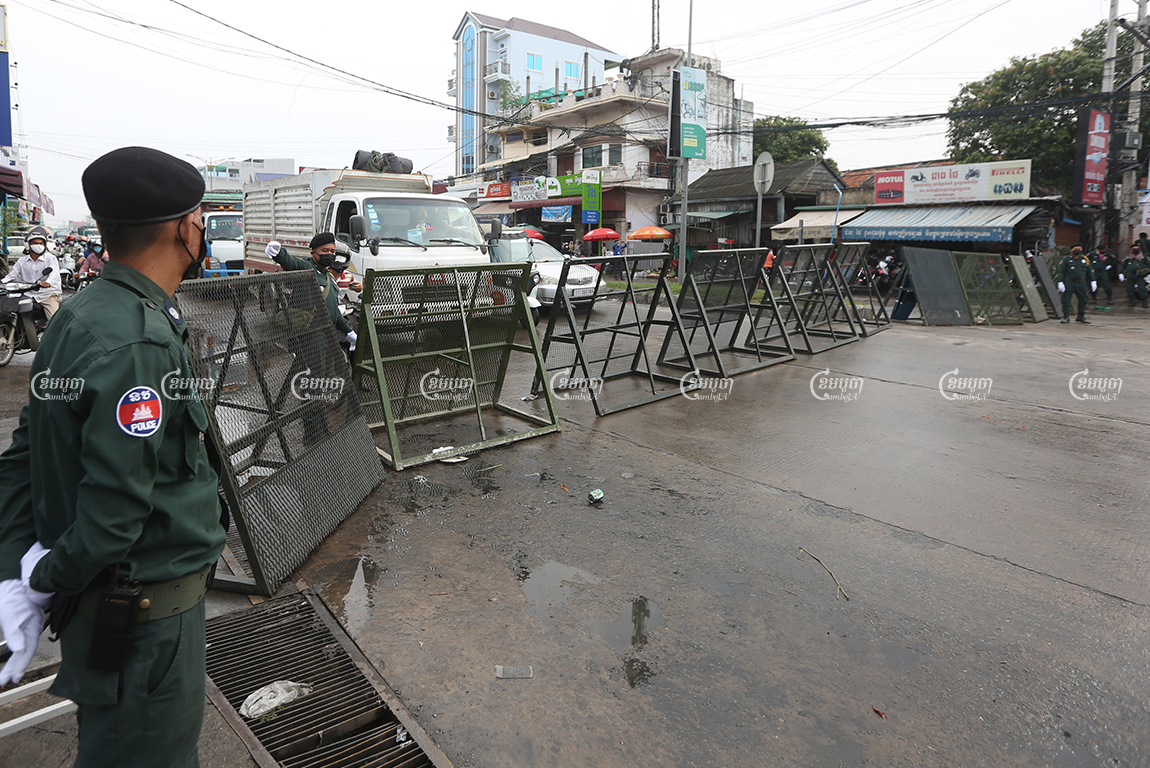
Violators of the lockdown measure, the statement warns, could face legal penalties.
Prime Minister Hun Sen said on Saturday that the government has provided some aid for families and others who have suffered from COVID-19, including utility payments for families affected by the measures to control the outbreak.
The prime minister said the government is providing 10 million riel, a sum split evenly between Health Ministry and City Hall, to the family of each deceased COVID-19 patient. For those families, Hun Sen said the government is also paying electricity and water bills for five months.
However, he added, the government is only providing such funds to Cambodian people who died of COVID-19 disease.
Moreover, the prime minister said the government is providing 300,000 riel to every family of a COVID-19 patient. For those either locked down or in quarantine, Hun Sen said the government will pay utility bills for two months and three months, respectively.
Beyond that, Hun Sen said microfinance institutes and banks have decided to allow interest payment preference and delayed payment for two months for the families of COVID-19 patients and other affected people.
On the other side of the benefits, Hun Sen made a direct statement to the justice minister urging him to penalize those who break with measures and laws related to containing COVID-19. The prime minister suggested an expedited enforcement timeline would be appropriate in these cases.
“I request Justice Minister Koeut Rith cooperate with the court to punish people who [break] quarantine to abuse the law,” Hun Sen said. “Arrest [suspect] tonight, could be sentenced tomorrow.”
Part of the urgency comes from the expanding number of cases and the resulting strain on government systems to contain them. The prime minister said the government has expanded treatment places for non-severe COVID-19 patients, including Koh Pich halls and other places that now hold more than 2,000 beds. Testing efforts in Phnom Penh have expanded beyond those directly in the hotspot zones, including the garment factory and the specific markets, and are including many who may have been exposed to the virus elsewhere, the prime minister said.
“Our doctors can no longer sustain because in just two days, more than 1,000 people were infected,” Hun Sen cautioned.
“The authorities have to strictly implement travelling across the provinces,” he said, pointing to what he cited as information that trucks transporting goods had also smuggled people over provincial borders. Those who are caught doing such things will be arrested and sentenced, the prime minister warned, and measures barring inter-province travel may be extended if the outbreak continues to spread.
So far, according to Hun Sen, the government has overseen the vaccination of nearly 1 million people, including 210,000 military members and 678,000 civilians.
Cambodian authorities are planning a 20-million-dose vaccine campaign, with more than 11 million innoculations to be imported this year. So far, more than 2 million doses of vaccine have arrived in Cambodia, including 1.3 million doses of the Sinopharm vaccine and 1.5 million doses of Sinovax, both made in China, and more than 300,000 doses of the AstraZeneca vaccine produced in India.
On April 17, said the prime minister, more than 500,000 doses of vaccine are set to arrive in Cambodia. In May, a further 1.5 million doses will arrive and, in June, the country will receive 3 million. Through July and August, another 3 million doses should arrive to the Kingdom.
Kao Savang, a 49-year-old hairdresser living in Stung Meanchey I, one of the communes now locked down for at least the next two weeks, says he supports measures by authorities to prevent the spread of COVID-19. But such measures come at a cost.
“Yes, it is affecting [incomes] because people cannot go outside, especially vendors who run businesses at night,” Savang said.
Besides the temporary subsidy of utility costs, Savang asked the government to consider temporary reduction of electrical and water fees for villagers living in lockdown areas.
Moeun Tola, executive director at labor rights group CENTRAL, is also one of the residents now locked down in Stung Meanchey I commune. Tola said he’s concerned for the garment workers now apparently at risk of infection through their factories.
“We have not seen regular measures for protection for the workers that are still working, [especially] with crowding, eating [and] traveling,” he said.
Though he also supports the measure as an anti-infection method, Tola said that the lockdown order was “very rushed to implement” for those in the affected areas, giving little time for residents to prepare.
The measure was announced at about 10:30 p.m. Friday night and implemented just two hours later.
“For me, [the 300,000 riel] is not much money offered to family members who have been affected by COVID-19,” he said, adding that lower-income workers such as tuk-tuk drivers and street vendors in the restricted areas will be especially impacted.


